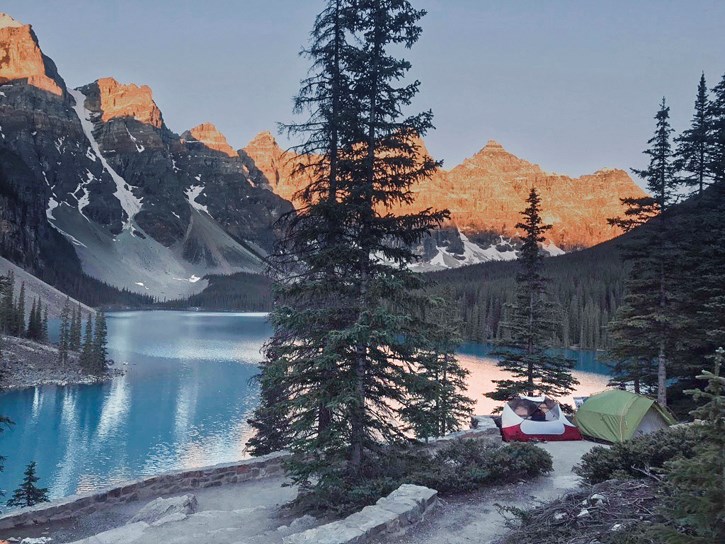LAKE LOUISE – Parks Canada managers have told wardens in Lake Louise to make illegal camping a lower enforcement priority, but to put problems around illegal wildlife feeding higher up on the list.
In an agreement with the law enforcement branch that sets out priorities, Parks Canada managers say there will be greater focus on emerging issues such as species at risk and feeding wildlife.
Officials say this doesn’t affect the day-to-day operational work and routine patrols of the six law enforcement wardens, but prioritizes what they see as greater threats to ecological integrity on a proactive basis.
“Illegal camping is still maintained as a priority, but we’ve asked law enforcement to spend time proactively trying to deal with those emerging issues,” said Rick Kubian, Parks Canada’s associate superintendent for Lake Louise, Yoho and Kootenay.
“The agreement is reflective of the current risk we see to ecological integrity… where we see the best energy spent in terms of living up to the need to reduce risks to ecological integrity and public safety.”
As the number of tourists visiting Banff National Park continues to soar and campgrounds are booked and full, there has been a dramatic increase in the number of people setting up camp illegally.
In 2017-18, about 4.2 million people visited Banff, an increase of about 28 per cent from 3.3 million five years ago. There’s a slight decrease so far this year compared to last year when passes to the park were free.
In 2016, Parks Canada responded to 53 illegal camping incidents, resulting in 42 charges. Last year that almost doubled to 96 cases, which resulted in 44 charges. The numbers for 2018 have not yet been compiled.
Unlike campgrounds with facilities, illegal camping can disturb the land and wildlife.
Campers often don’t pack out garbage and waste, and the smell of food has been known to attract animals such as bears.
There have even been reported cases of campfires during times of a fire ban.
Kubian said there has been a big increase in the illegal feeding of wildlife in the last few years, which can prove extremely dangerous for people and can lead to the death of animals if they become food-conditioned.
“Over the course of my career, by and large, it had been eliminated as a concern but it’s really come on again,” he said.
“With the number of incidents we’re now seeing, we’ve come to recognize the importance of spending energy there.”
This summer, a photo of campers who illegally set up a tent at the top of the rock pile at Moraine Lake, one of Canada’s most iconic destinations, did the rounds on social media.
Kathryn MacDonald, a resident of Canmore for more than 20 years and a tour guide, posted the photo to highlight concerns associated with growing visitation in the national park.
Her husband took an early morning walk up the rock pile, only to see two young women peak out of the tent upon his arrival and then crawl back in to continue their slumber.
MacDonald fired off a letter to Parks Canada and Environment and Climate Change Minister Catherine McKenna.
“If something isn’t done – and soon – paying close attention to Parks Canada’s mandate, we will have failed miserably having not protected our parks for future generations,” she said.




